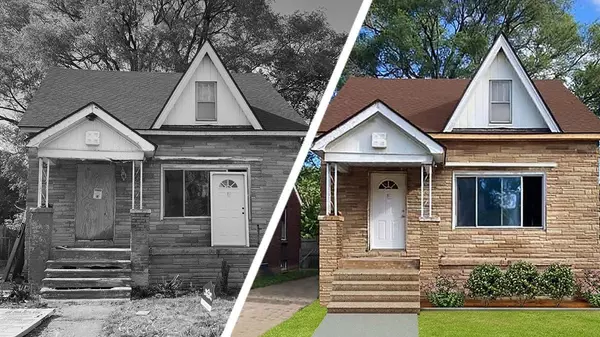L.A.’s ‘Mansion Tax’ Put a Damper on Luxury Sales—but Raised $215M for Housing Initiatives

Getty Images
One year after it was implemented, a higher real estate transfer tax in Los Angeles has raised millions to fund affordable housing—but it appears to have chilled luxury home sales in the city.
Dubbed a “mansion tax” by supporters, the policy adds a 4% tax on the total transaction for property sales over $5 million and a 5.5% rate for sales above $10 million. Those are on top of the 0.45% tax Los Angles already levied on all real estate deals—a tax typically paid by the seller.
Since taking effect April 1, 2023, the policy officially known as Measure ULA has raised roughly $215 million, according to the city’s housing department. Those funds are intended to support affordable housing initiatives and help alleviate homelessness.
But so far, the added revenue has fallen short of the $672 million the city projected the new tax would reap annually. Plus, local real estate agents say the initiative has put a damper on luxury home sales, prompting wealthy prospective buyers to look elsewhere.
“It’s not bringing the money they thought it would bring,” says Anne Russell, director of risk management at Rodeo Realty. “These measures simply stifled the transfer of property.”
Russell, who is also the current president of the Greater Los Angeles Realtors (GLAR), adds that the tax is “just another reason why people don’t want to sell their homes, so that younger, new homebuyers can go in and buy them.”
Data from Realtor.com® reveals a flurry of home sales over $5 million in Los Angeles, just before the new tax took effect—specifically, there were 138 such sales in March 2023, followed by just two sales the following month.
“I had a property I sold in Redwood Park that we were frantic to get it closed by March 31–frantic,” recalls Russell. “The buyers saw that they had an advantage, and so there was some negotiating going on at the 11th hour.”
Since the new tax took effect, single-family home sales above $5 million in L.A. have climbed back to double digits monthly—but remain well below the levels seen in 2021 and 2022. The most recent available sales data from April 2023-January 2024 shows 150 such sales, a 68% decline from the 474 homes sold in the same 10-month period a year earlier.
Higher mortgage rates and other market forces have also weighed on luxury sales in neighboring affluent cities, though not to the same extent. In Beverly Hills, home sales above $5 million are down 43 percent year-on-year since April 2023. Santa Monica saw a decline of 25 percent, while deals in Malibu were down 23 percent.
“We’re very supportive of efforts to end homelessness and create more housing opportunities,” says Russell. “But I think our legislatures have a problem thinking five steps ahead.”
Supporters say ‘mansion tax’ crucial to tackle homelessness
Supporters of the new transfer tax say it is raising much-needed funding to alleviate homelessness in Los Angeles, a chronic issue for the city of nearly 4 million people.
“ULA has already proven to be one of the greatest revenue sources for affordable housing that L.A. has ever seen,” says Joseph Donlin, the director of United to House LA, the coalition that backed the November 2022 local ballot measure that approved the new tax.
In August, the L.A. City Council passed a spending plan for the the first $150 million raised by the added tax, devoting the funds to tenant aid and affordable housing production.
According to the Los Angeles Times, the city has so far spent around $28 million to help distressed tenants and landlords, $23 million on eviction protection and tenant outreach, and $56.8 million on loans to accelerate the development of affordable multifamily housing projects.
“None of that happens without ULA,” Greg Good, a senior advisor on policy and external affairs for the L.A. Housing Department, told the Times.
Donlin credits the new funds for direct rental assistance with helping keep about 11,000 Angelenos housed so far. He says the city is also poised to approve funding for 795 new affordable homes subsidized by the new tax revenue.
The measure has so far survived an onslaught of challenges from the real estate industry. In October, a judge dismissed a lawsuit claiming the tax was unconstitutional, though that decision is under appeal.
The next challenge comes in November, when California voters will consider a statewide ballot measure that would effectively strike down the tax.
“The luxury real estate industry is doing everything they can to undermine it; but given all that, it’s a big success,” says Donelin. “From an economic development perspective, it’s a success. And from the perspective of keeping people housed in Los Angeles, which is a huge need, it’s exactly what L.A. needs right now.”
Critics say tax hurts renters, consumers
Critics of the new tax say the term “mansion tax” is misleading, because the higher tax rate applies to all asset classes—not just luxury homes.
That means multifamily apartment buildings and commercial real estate, for which $5 million transactions could fall on the mid to low end, are also subject to the tax. Businesses could pass those costs to consumers, and landlords might respond by raising rents, critics warn.
“We are seeing the tax impact a wide range of properties in markets across Los Angeles, beyond just large single-family homes,” says Jerard Wright, government affairs director for GLAR, in a statement. “With the high real estate prices in the Los Angeles area, $5,000,000 threshold covers a lot of properties and property types in the region, and the extra costs at closing are going to have a lot of unintended impacts on multifamily and mixed-use properties.”
Wright believes these properties are “critical to providing the range of housing types needed to solve our housing availability and affordability crisis.”
Making them more expensive, he says, will negatively impact residential and small commercial tenants.
Wright adds that GLAR is “strongly supportive of efforts to solve the homelessness and housing crisis across the region” and has “supported multiple funding measures since 2015 that have generated billions in resources and funding to address these issues that do not create new, and extra, costs at the closing table.”
Meanwhile, Russell notes that the tax “is not just affecting rich people” and has far broader implications.
“Isn’t that the stepway to homelessness, if you can’t find an apartment?” she adds. “When they put this additional tax on people trying to develop or build or fix up income property, in order to provide the units that we need to prevent homelessness, they’re putting a wrench into that.”
Elsewhere in the U.S., similar tax proposals have faced resistance. Last month, Chicago voters rejected a ballot proposal to raise the real estate transfer tax on transactions worth more than $1 million.
The post L.A.’s ‘Mansion Tax’ Put a Damper on Luxury Sales—but Raised $215M for Housing Initiatives appeared first on Real Estate News & Insights | realtor.com®.
Categories
Recent Posts










